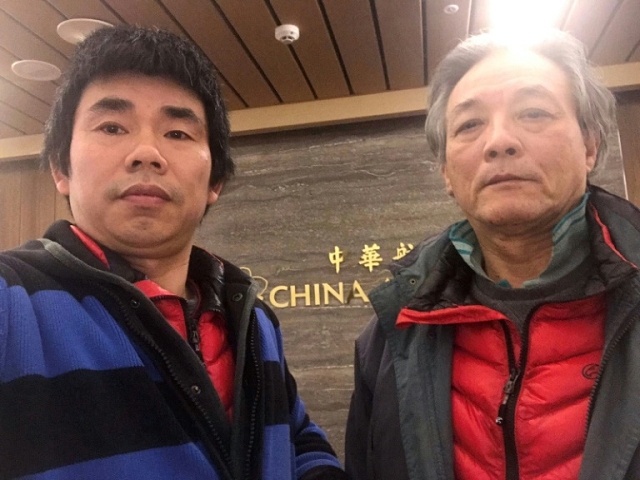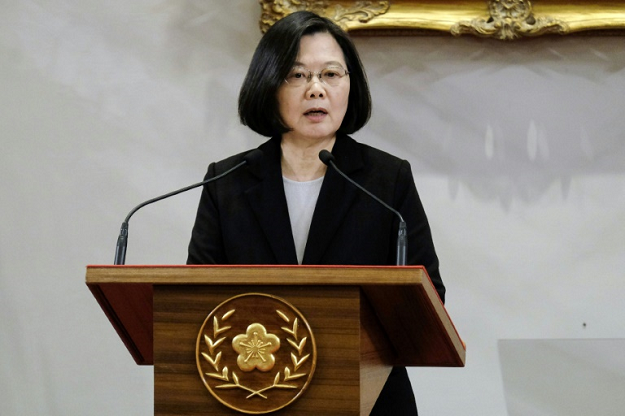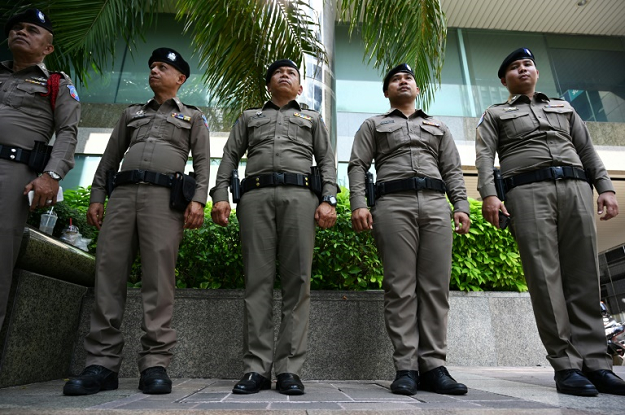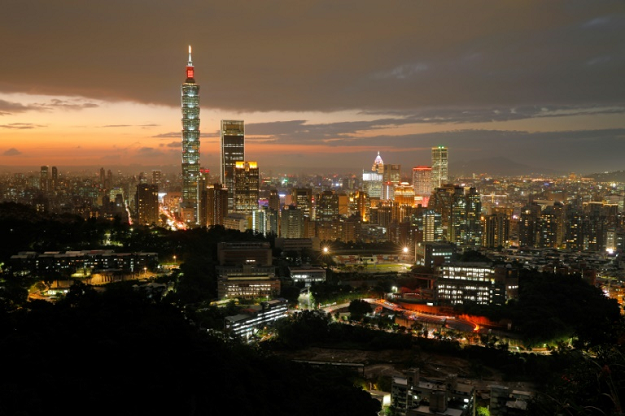Chinese dissidents in Taiwan airport limbo for over 100 days
Hoping for asylum overseas

Liu Xinglian (R) and Yan Kefen, Chinese dissidents trapped in limbo at Taiwan's Taoyuan airport, have applied for asylum in Canada. PHOTO: AFP
Their case has parallels with that of Rahaf Mohammed al-Qunun, the Saudi teen who was given sanctuary in Canada after she sensationally deployed social media to shame Thai authorities against forcibly returning her to her family.
But the Chinese asylum seekers have received little international attention or solidarity.
Like Qunun, Liu and his friend Yan Kefen, 44, have applied for asylum in Canada and posted updates on social media from the airport highlighting their plight.
"Inside the airport we can't breathe fresh air and there's no sunlight," Liu told AFP by phone from the fluorescent-lit fourth-floor room in transit where the pair have spent much of the last three months, subsisting on a diet of boxed meals provided by airlines.
'At any cost': China warns US Navy over Taiwan
"That can't be too healthy right?" he fretted.
Liu and Yan are hostage to Taiwan's unusual international status and its domestic politics.
The self-ruled island is not recognised by most nations and has no United Nations representation, meaning the UN's refugee agency does not operate there.
 President Tsai Ing-wen's government - which takes a more sceptical view of Beijing and vocally pushes its human rights credentials - has so far made no moves to deport Liu and Yan. PHOTO: AFP
President Tsai Ing-wen's government - which takes a more sceptical view of Beijing and vocally pushes its human rights credentials - has so far made no moves to deport Liu and Yan. PHOTO: AFPAnd while Taiwan's current polity was founded by people fleeing China's civil war, it does not have local laws to protect refugees.
In recent decades governments have been loathe to allow in those fleeing the authoritarian mainland, fearful of angering Beijing or encouraging a deluge.
President Tsai Ing-wen's government - which takes a more sceptical view of Beijing and vocally pushes its human rights credentials - has so far made no moves to deport Liu and Yan.
As a result, they are stuck - blocked from entering Taiwan yet unable to leave the transit area.
The pair never intended to end up in Taiwan.
Both fell foul of China's authorities for political activism and fled to Thailand, Yan arriving in 2015, Liu in 2017.
Bangkok does not recognise asylum applications and outsources the determination of refugee status to the the UN's UNHCR, which tries to resettle legitimate claimants in a third country. But the waiting list is notoriously long.
Both Yan and Liu received refugee status from the UNHCR - they sent AFP copies of their documentation - and were happy to remain in Thailand while they sought asylum.
But then Thai police started paying them frequent visits.
"I felt my life was in danger in Bangkok," Yan told AFP. "I was also afraid Thai police would deport me back to China."
 Bangkok does not recognise asylum applications and outsources the determination of refugee status to the the UN's UNHCR. PHOTO: AFP
Bangkok does not recognise asylum applications and outsources the determination of refugee status to the the UN's UNHCR. PHOTO: AFPThey had reason to worry.
Thailand has moved closer to Beijing since generals seized power in 2014, showing a willingness to forcibly return Chinese dissidents.
More than 100 Uighurs and a slew of activists, some of whom had been granted asylum in Canada, have been sent back during the last five years.
Bookseller Gui Minhai, a Swedish citizen, disappeared from the resort town of Pattaya and resurfaced on Chinese state TV making a "confession".
Liu and Yan decided to make a run for it, landing in Taipei on 27 September.
"We just wanted to get out of Thailand when we boarded that plane," Yan, who also uses the name Yan Bojun, recalled. "We did not have any plans except asking for refuge during our stopover."
Liu and Yan do not currently fear imminent deportation and say they have been treated well by Taiwanese officials.
"We don't want to create trouble for Taiwan, but we need to go on to Facebook and Twitter so that people will not forget us," Yan explained.
 Taiwan is not recognised by most nations and has no United Nations representation, meaning the UN's refugee agency does not operate there. PHOTO: AFP
Taiwan is not recognised by most nations and has no United Nations representation, meaning the UN's refugee agency does not operate there. PHOTO: AFPChina to frame policies to boost foreign investment
Taiwan's Mainland Affairs Council - the office that deals with the Chinese mainland - said it recognised "our country's mechanism for dealing with refugee claimants is not yet adequate".
But it added that it and other government agencies were committed to "upholding human rights and also the safety of these two persons".
Canada's consulate in Hong Kong declined to comment citing privacy rules.
Back at Taoyuan airport, all Yan and Liu can do is wait.
"I don't know how much longer I have to stay at this airport," Yan said.
"I can only hope I can leave before the Chinese New Year. If I can't, I can't. There's nothing I can do."



















COMMENTS
Comments are moderated and generally will be posted if they are on-topic and not abusive.
For more information, please see our Comments FAQ